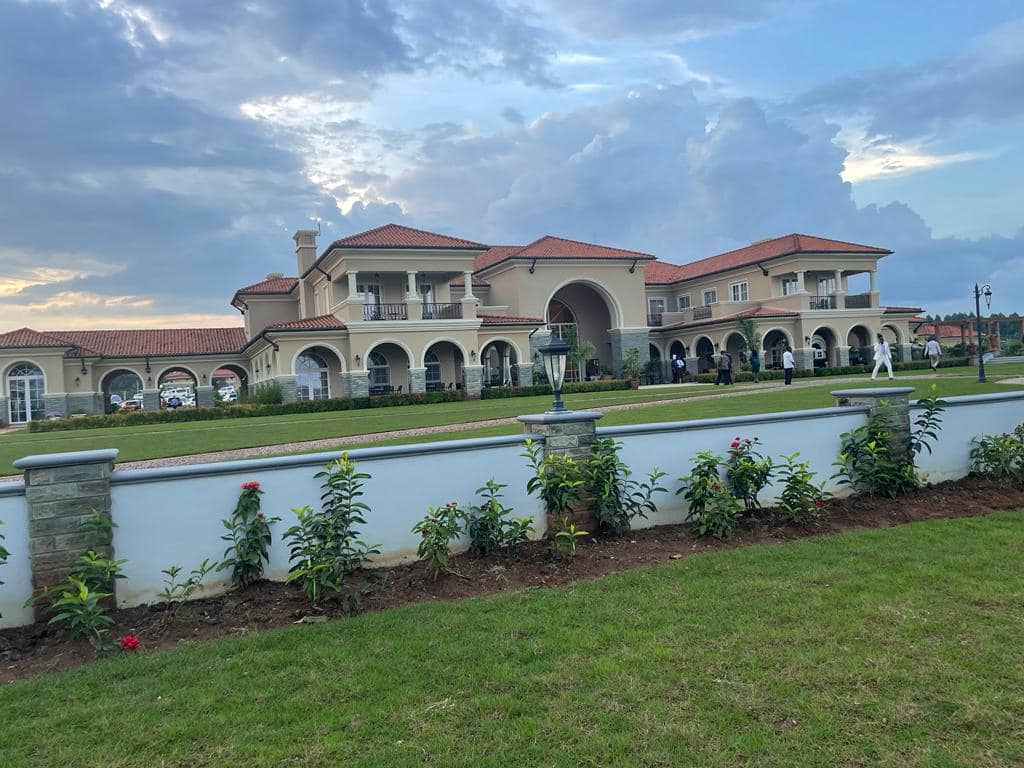By Denis Jjuuko
In the early evening of the second day of this year, a video started trending on various social media platforms in Uganda. A guest attending a house warming party had recorded the video while narrating what the amenities were in the house. He concentrated on the visitors’ toilets, guest house, flowers and the sheer size of the compound. Although he exaggerated the acreage of the land on which the house sits, the picture was clear for everyone. Photos eventually emerged as well.
For the next few days, social media discussions were centered on the house. Its sheer size and architectural beauty. One person tweeted that at least Kampala’s billionaires were finally building something Hollywood-esque. Others compared it to a five-star hotel in Kigo. Both the hotel it was compared to and the mansion borrow from the Mediterranean architectural themes. A well-traveled friend who was among the guests at the house warming party told me that he hadn’t entered a house that big before and commended the owner’s taste.
On social media, eventually everyone asked who the owner was. It turned out, the house on the shores of Lake Victoria in Kasanje Buwaya belonged to Kampala businessman and papal knight Joseph Yiga and his wife Regina. Many people had never heard of Joseph Yiga before and many actually confused him with a dealer in real estate with whom he shares both names.
Yet Joseph Yiga is the founder of one of Uganda’s most known brands — Steel and Tube and before that, Hardware Deals. I would never blame them for not knowing him. I have been to events where Yiga has attended but he keeps a low profile. He will never arrive at an event where he would ask the protocol people whether they knew who he was. That is for wannabes who actually have nothing to their name or have just fallen into things the other day.
Yiga didn’t become a captain of the industry the other day. He has been in the trenches of business for the better part of his life. Before he founded Hardware Deals, the precursor to Steel and Tube, Yiga had been involved in the cosmetics business among others. As Kampala expanded, he saw opportunities in the construction sector and eventually started his steel manufacturing empire. Steel and Tube is said to be among the top five steel manufacturing businesses in Uganda.
That means he can afford the mansion in Kasanje that rivals some of the best five-star hotels in Kampala. But I don’t want to write about his mansion. We know he can afford it. But what do we learn from him?
The story is in his move from a hardware stockist to a large manufacture of steel products. He was never contented with playing second fiddle to businessmen from Asia who came here and set up manufacturing businesses and controlled the market.
Many Ugandan businesspeople travel to Asia, particularly China, for decades importing stuff and stocking them. Most of the stuff they import can easily be made here but they don’t look at business that way.
Countries develop when nationals can control some of the sectors of the economy. If we concentrate on being traders of stuff we can make, we are always at the mercy of those who manufacture them. Manufacturers set the price of their products. They determine the quality and quantity you can get. They can even remove the business from you and start dealing with another trader who may be can deposit more money with them than you. There is nothing you can do about it. That way they determine how much money you can make and you will never make more than them. Many times, they use your money.
Had Yiga remained a hardware dealer in Nakasero in the Kampala Central Business District, he would have been wealthy but not able to control any percentage of the steel market in Uganda and the region as he does today. He would probably have built a mega country home but not as luxurious as the one he built in Kasanje Buwaya.
He would have employed many people but not the thousands that work in his factories today. If there is anything Ugandan businesspeople can learn from Joseph Yiga, it is the need to move from trading to manufacturing and of course other sectors like banking. We can’t be leaving this to only foreign entities.
The writer is a communication and visibility consultant. djjuuko@gmail.com










